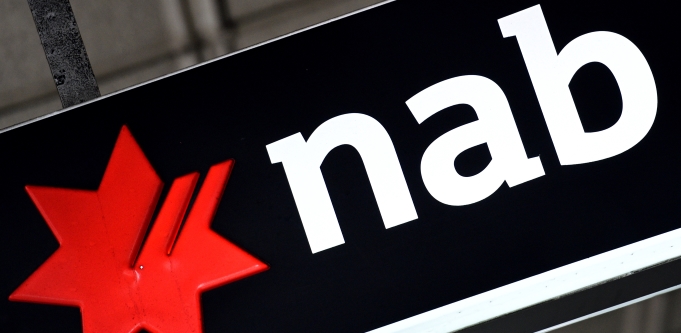
National Australia Bank. Source: AAP/Mick Tsikas.
Aussie founders will soon have access to a $2 billion pool of fresh funding, with big-four bank NAB announcing a new allocation of loans specifically aimed at startups.
The bank will provide emerging technology companies with access to the loans, along with banking and risk management support. NAB will also aid the startups in getting access to venture capital markets and larger debt funding.
“This commitment is about giving technology companies with demonstrated potential for growth the shot-in-the-arm they need to be bigger and better,” Anthony Healy, NAB’s chief customer officer for business and private banking said in a statement.
“These tech-driven companies are often already profitable but need further capital and banking expertise to grow. As Australia’s leading business bank, this $2 billion commitment is further demonstration that we are listening to our customers and supporting their needs today, and planning and investing in Australia’s long-term future.”
NAB will establish a new team to oversee the loans, which Healy says were introduced off the back of CSIRO’s recent Australian National Outlook report, which specified Australia would need to further invest in technology to ensure a thriving economy by 2060.
The loans will be given out over the next five years, and some financing may come in the form of equity capital from NAB’s Venture arm. The bank will be targeting businesses across all sectors which have “technology-enabled business models” with high levels of “medium term potential”.
Venture debt on the up
The Australian startup ecosystem is warming to the concept of loans and venture debt funding, with NAB’s announcement coming a few days after debt fund Leap Capital revealed it had raised $50 million to invest in Aussie scale-ups.
The fund’s manager, Guy Reypert, told the Australian Financial Review the loans were intended to be complementary to equity funding, and were targeted at more developed startups who have the capacity to take on debt.
“Early-stage startups can’t support debt, and it doesn’t make sense for them to take a loan, so you need the equity first, and then as the businesses grow, some of them can support a loan,” Reypert said.
Leap Capital’s model is similar to that of established VC fund OneVentures, who opened the doors of their $45 million venture debt fund in April, with managing partner Michelle Deaker telling StartupSmart the fund was looking for businesses in the SaaS, platform and IOT spaces.
“We’re talking about companies that have $5 to $15 million in good recurring revenue, though we’d look at any tech company generating revenue as low as $3 million and as high as $20 million,” she said at the time.
Just this week, the OneVentures fund announced its first ever investment in Airbnb property management platform Hometime, pouring $6 million into the company as a mixture of debt and equity funding.
“We believe that venture debt is an appropriate structure for a company such as ours, that is generating substantial revenue but needs additional working and acquisition capital in order to execute our aggressive growth plans,” Hometime co-founder William Crock said in a statement.
While neither fund takes equity in the companies they invest in, they both have the choice to take options or warrants in the startups, providing the investors rights to purchase stock at a certain agreed-on price in future funding rounds. Deaker says investors in these venture debt funds can see returns as high as 20% thanks to these options.
According to Deaker, venture debt funds expose more investors to startups than traditional venture capital, saying they offer “an opportunity to invest in technology in a way that has got lower volatility and lower risk”.
NOW READ: The complete guide to startup capital: 12 ways to fund a new venture in Australia


COMMENTS
SmartCompany is committed to hosting lively discussions. Help us keep the conversation useful, interesting and welcoming. We aim to publish comments quickly in the interest of promoting robust conversation, but we’re a small team and we deploy filters to protect against legal risk. Occasionally your comment may be held up while it is being reviewed, but we’re working as fast as we can to keep the conversation rolling.
The SmartCompany comment section is members-only content. Please subscribe to leave a comment.
The SmartCompany comment section is members-only content. Please login to leave a comment.